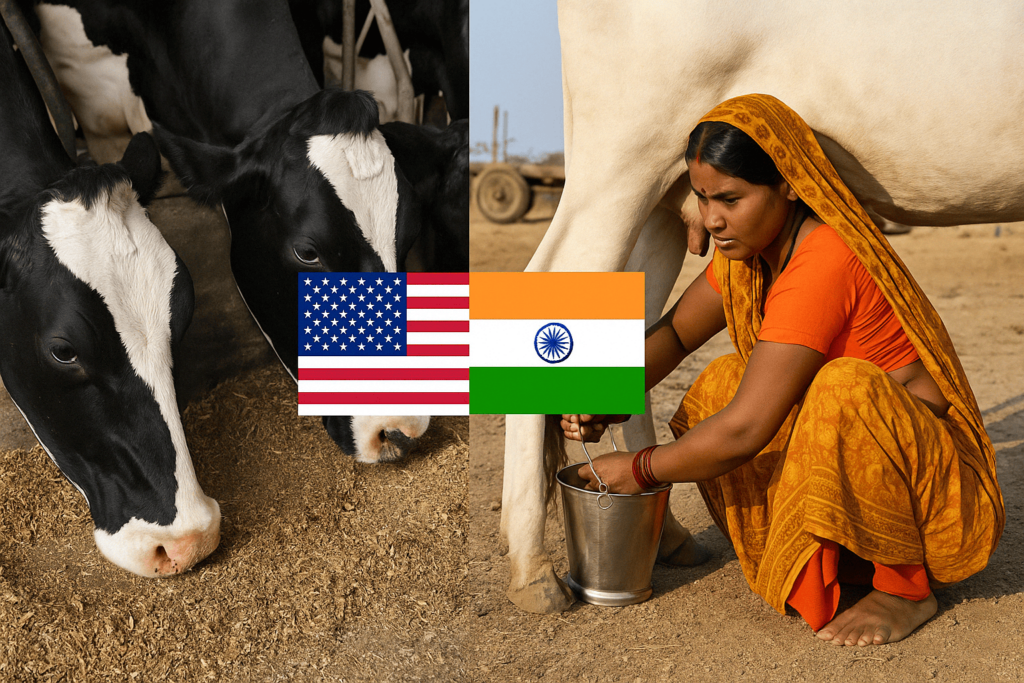India has reiterated its refusal to allow US dairy imports, citing ethical concerns over the use of animal-derived feed. This non-negotiable position underscores India’s cultural and regulatory commitment to vegetarian feed standards in its dairy sector, even amidst broader trade discussions with the United States.
India has taken a firm stance in its trade negotiations with the United States by refusing to open its dairy market to American imports due to ethical concerns surrounding animal feed practices. The dispute centers on the use of animal-derived ingredients in US dairy cattle feed, which directly conflicts with India’s religious values and long-standing regulatory standards that mandate vegetarian feed sources.
This position is not new but has once again become a flashpoint in broader India-US trade discussions. India’s dairy sector, particularly in states like Uttar Pradesh and Gujarat, is built upon a foundation of cultural sensitivity and rural self-reliance. The industry is largely driven by cooperatives and smallholder farmers who strictly adhere to vegetarian feeding norms in line with societal expectations.
Accepting US dairy products raised on non-vegetarian feed would not only contradict India’s regulatory framework but also pose significant disruptions to its domestic dairy ecosystem, which plays a vital role in sustaining rural livelihoods.
While US trade negotiators have pushed for greater access to the Indian dairy market as part of ongoing bilateral trade efforts, Indian officials have made it clear that any compromise on this matter is off the table.
For India’s dairy cooperatives and entrepreneurs, the government’s position reinforces its commitment to preserving cultural values and farmer-first policies, even in the face of global trade pressures.
